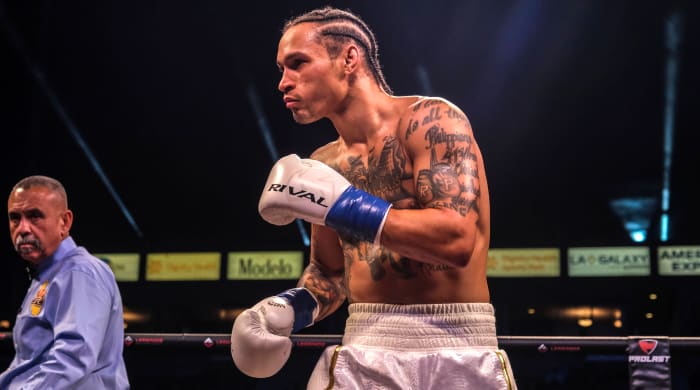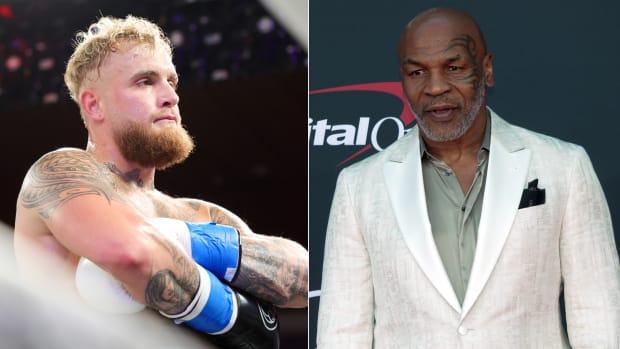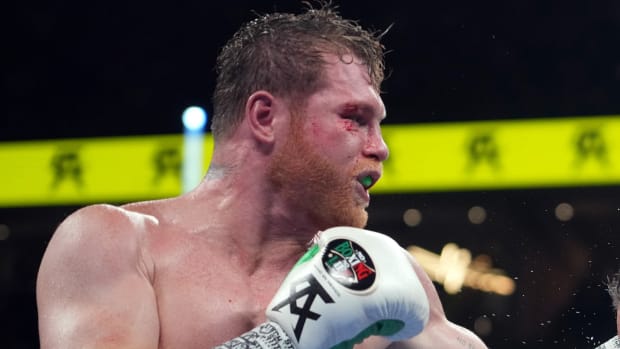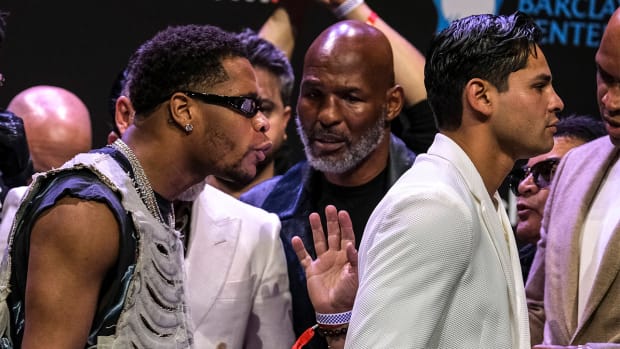Books and Bouts: Regis Prograis’s Reading Obsession Is His Secret to Boxing Success
The world champion boxer—winner of 29 bouts, collector of 24 knockouts and sufferer of only one defeat, delivered by another elite champion—understands his world. But despite all the baked-in machismo and violence and brutality, Regis Prograis is also unafraid to admit to and lay out his most unexpected career secret. In addition to power, agility, technical proficiency and the rest of his complete skill set, Prograis also benefits from … reading?
It's true. Prograis is The Fighting Reader, a pugilist who could start a book club if he wanted. He even recommended a book—Fortune Favors the Bold, by Lester Thurow—to me, after I pitched chopping it up on this most unlikely of topics heading into a big fight. His latest is scheduled for Saturday, against a popular pound-for-pound pick in Devin Haney, in San Francisco.

Prograis’s reading obsession started when he wanted to learn proper techniques for personal training.
Adam DelGiudice/IMAGO
The Fighting Reader welcomed a break from the usual questions, all built on strategy and strengths vs. weaknesses and what might be next for both men. Over Zoom last week, he started by laying out not his boxing journey but his literary one. It didn’t start in childhood, beyond the minimum requirements necessary for his classes in New Orleans. Prograis hated school and saw his future in boxing, which only added to his natural disdain. But in the gap before he turned professional in his early 20s, he picked up one book and then another book and then a few dozen more books.
“It just took off,” he says, laughing at the juxtaposition.
See, The Fighting Reader always fancied himself a learner. But he never liked learning in the most common way. Classrooms felt confining, not for him, the kinds of places where other children studied to enroll in college and ace tests. Prograis learned best when diving into what most interested him. And, most often, what he chose to read related directly to his life status at any point in time after age 19.
For instance, before turning pro, The Fighting Reader did some personal training work to stay in shape and pay the bills. So he devoured books on proper weightlifting techniques, elite training regimens and the personal training industry. All helped him figure out practices he could apply—and did apply—to his own workouts.
His first pro bout, a first-round knockout, took place in April 2012. A true pro at that point, he flooded his bookshelf with volumes on financial literacy, because he hoped to earn enough in boxing to understand how to save and invest and not, like so many champions, wake up one day to a pile of millions that had vanished.
More fights meant more wins, and the combination sent The Fighting Reader down historical rabbit holes—about the sport’s best boxers, the pay-per-view boom, the instant classic bouts (or trilogies) and ongoing evolutions. He tried out training methods, fight strategies or anything else that fit based on those reading sessions, too. In fact, at that point, Prograis says he subbed reading for watching television, which meant often sticking his nose into books for six hours a day(!).
Soon, he understood what might seem counterintuitive: Many boxers read. The best example is also his favorite champion, Mike Tyson, who consumed volumes ranging from The Epic of Gilgamesh to Prince of Darkness to The Gene Keys. They’re not alone. They’re even tied. In addition to watching classic Tyson knockouts, The Fighting Reader also sped through Tyson’s best-selling memoir, Undisputed Truth, along with several volumes devoted to various aspects of Muhammad Ali’s life/career and others that explained luminaries like Sugar Ray Robinson and Joe Louis and Henry Armstrong.
This makes sense, boxers as readers, and more than might be obvious. For one, all boxers have a ton of downtime, especially when they’re not preparing for a bout. For another, they’re athletes and specimens, yes, but also, most of them, steeped in strategy and psychology. Beyond that, it’s easy to argue that boxing, as a sport, is a narrative endeavor. That goes for the fighters themselves and their stories, so many rich and sad and tragic and profound. But some of the best books ever written were about boxing or boxers—for my money: The Fight by Norman Mailer or Sound and Fury by Dave Kindred—and The Fighting Reader downed many of those as he kept knocking out opponents.
Asked why boxing lends itself to storytelling so perfectly, The Fighting Reader starts with a confession. He is currently “beefing” with his wife. The Haney bout is important, for his career and their lives. But he’s cutting weight, training endlessly and seesawing between emotions—and sometimes, even if he wishes this didn’t happen, his stress can fall on her. The mind of a boxer, he continues, is a fascinating place to explore. The sport blends art, science and violence, which means the best boxers must excel in far more than hitting someone as hard as they can. “It’s a lot. It’s a lonely sport,” Prograis says. “People don’t understand.”
The Fighting Reader has always been a different kind of boxer. He’s from New Orleans, home to many epics but not necessarily a hotbed any longer. He moved to Houston early into his career, because he liked how worldly it was, a little bit of everything, globalization in play just as in the book he recommended. After splitting from his promotional company, he negotiated his own contract for this bout, becoming a pugilist version of Lamar Jackson.

Around the time he lost to Taylor in 2019, Prograis started reading books centered on mental health.
Martyn Haworth/IMAGO
Reading powered some of that. As his life changed and possibilities ahead broadened, he read the Bible and other religious texts. Before and after he lost to Josh Taylor in 2019, he dived into the self-help genre, his choices centered on process and optimization and mental health. He resolved to make his mind as strong as his body, which, given his profession, was no easy feat. The Power of Positive Thinking became a favorite, as did A Fighter’s Heart and The Fighter’s Mind. Both of the last two were written by Sam Sheridan, whom Prograis reached out to and spoke with. He says he read both volumes “two or three” times.
Meanwhile, whenever The Fighting Reader engages in the community he left, and often with students in those same New Orleans–area schools, he tells them to do what he did, to read what interests them. I tell the same thing to students I speak with. That’s the first step to reading things you don’t love—reading what you do. For Prograis, spying a magazine article on Olympic athletes who replaced television viewing with reading sparked him to try the same approach. He hopes more kids who are turned off by the exercise and its nerdy reputation will do the same.
The Fighting Reader also tells them this: It matters. He has written a book about his life, with a ghostwriter, that will likely be released next year. He sometimes discusses books in training camps, comparing titles and impact. But it matters, in large part, because his literary life helps him actually box. He enters bouts more prepared, with better nutrition strategies and better in-ring tactics. Reading gives him a break from the monotony of training, the ability to escape into other worlds.
It's funny, though, those gym sessions where this topic comes up, whether with other fighters, trainers or anyone else who happens to pop in. Most times someone recommends one volume or another to him, The Fighting Reader can only laugh and offer the same sentence.
“I already read that.”





